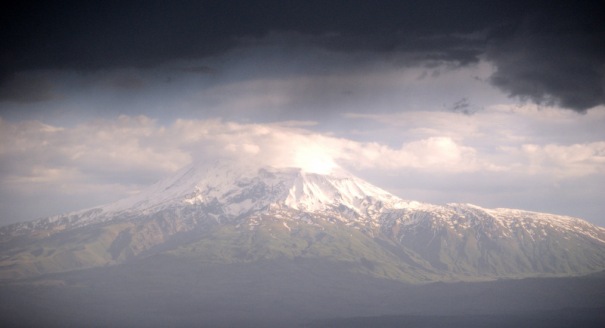The scope of Israeli foreign policy is often mistakenly narrowed to its geographical location. While Tel Aviv’s vital interests are certainly concentrated in the Middle East, its intellectual, political, economic, technological, and lobbying resources harken its description as a regional power with a global outreach.
The Jewish political tradition is primarily based on the school of realism. From this school, the country has derived the three guiding principles of its foreign policy: a focus on “survival in an antagonistic neighborhood,” the pursuit of power, and the formation of alliances. Israel’s foreign policy is also very much linked to its deep-seated historical traditions.
The “Alliance of the Periphery,” formed in the 1950s, is one of these traditions. The Periphery Doctrine, as it was framed, presumed the development of close relationships with non-Arab Muslim nations in the Middle East. At the time, the two chief targets of the policy were Turkey and pre-revolutionary Iran. Times have changed; Ankara is perceived as unfriendly at best and Tehran is an ominous threat. Moreover, with the rise of ISIS and Islamist sentiments, Israel’s stance in the region has been challenged further. Today, the Periphery Doctrine that once seemed to have been stored away has been called back into action. But this time it is targeted toward a region that feels the dynamic vibe of the Middle East yet has geopolitical leverage over its northern part—the Caucasus.
Israel’s engagement in the Caucasus increased in the late 2000s when its Foreign Ministry established special departments on the Caucasus and Central Asia. In its relatively short track record of focusing more resources on the region, Israeli policy has gone through two major stages. The first stage took place before 2008 and focused on Georgia. Israel trained the Georgian army and allowed private defense firms to supply it with drones and sophisticated equipment. After the war in South Ossetia in 2008, Tel-Aviv lowered its public profile in Georgia to avoid antagonizing Moscow. To compensate, Israel augmented its presence in Azerbaijan.
In this second stage of engagement in the Caucasus, the trade turnover between the two countries amounted to some 4 billion dollars, with Israel buying Azeri oil and planning to import 12 billion cubic meters of gas from the Caspian country over the next decade. Most importantly, however Israel sees Azerbaijan, in the words of former President Shimon Perez, as “key in limiting Iran’s influence in the Greater Middle East.” The well-known list of grievances between Baku and Tehran includes four major areas of disagreement: 1) the status of the Caspian Sea; 2) the Nagorno Karabakh issue where Iran has taken a rather pro-Armenian stance; 3) the territorial dispute over the northwestern part of Iran—the so called “Iranian Azerbaijan” that is home to an estimated 20 million ethnic Azeris; 4) a religious factor—Baku accuses Iran of fueling radical moods in the secular Shia-majority country. Against this background, Israel sees Azerbaijan as pivotal in its “encirclement strategy” of the Islamic Republic. While there are several restrains to the Israeli-Azerbaijani rapprochement such as the Turkish factor, anti-Semitism, and Azerbaijani-Palestinian relations, countering Iran through formation of periphery alliances (this time with Azerbaijan) is perfectly built into Israeli strategic planning.
Israel also sticks to a tradition of providing support to Jewish diasporas across the globe. In the Caucasus this foreign policy resource is quite significant. In Georgia, the official statistics from 2012 listed 3,540 Jews living in the country; unofficial records hold it as high as 8 to 12 thousand. In Azerbaijan—where the number of Jews is less transparent—the figure ranges from 9 to 16 thousand people. In many cases, especially in Georgia, citizens of Jewish descend hold influential positions in government and business which represents an opportunity for greater Israeli political and economic engagement in the region.
In a nutshell, Israel’s interests in the Caucasus have three principal dimensions: strategically, as a means of encircling Iran; in the mid-term, as a zone of energy supplies; and in a short-term, as a market for selling high tech arms and ammunition. At the same time these dimensions represent a challenge for the troika of traditional regional players—Russia, Turkey, and Iran—who are very reluctant to let in any outsiders.
Maxim A. Suchkov, a former Fulbright visiting fellow at Georgetown University (2010–11), is currently a contributor to Al Monitor (Russia Pulse) and fellow at the Institute for Strategic Studies (Pyatigorsk).
